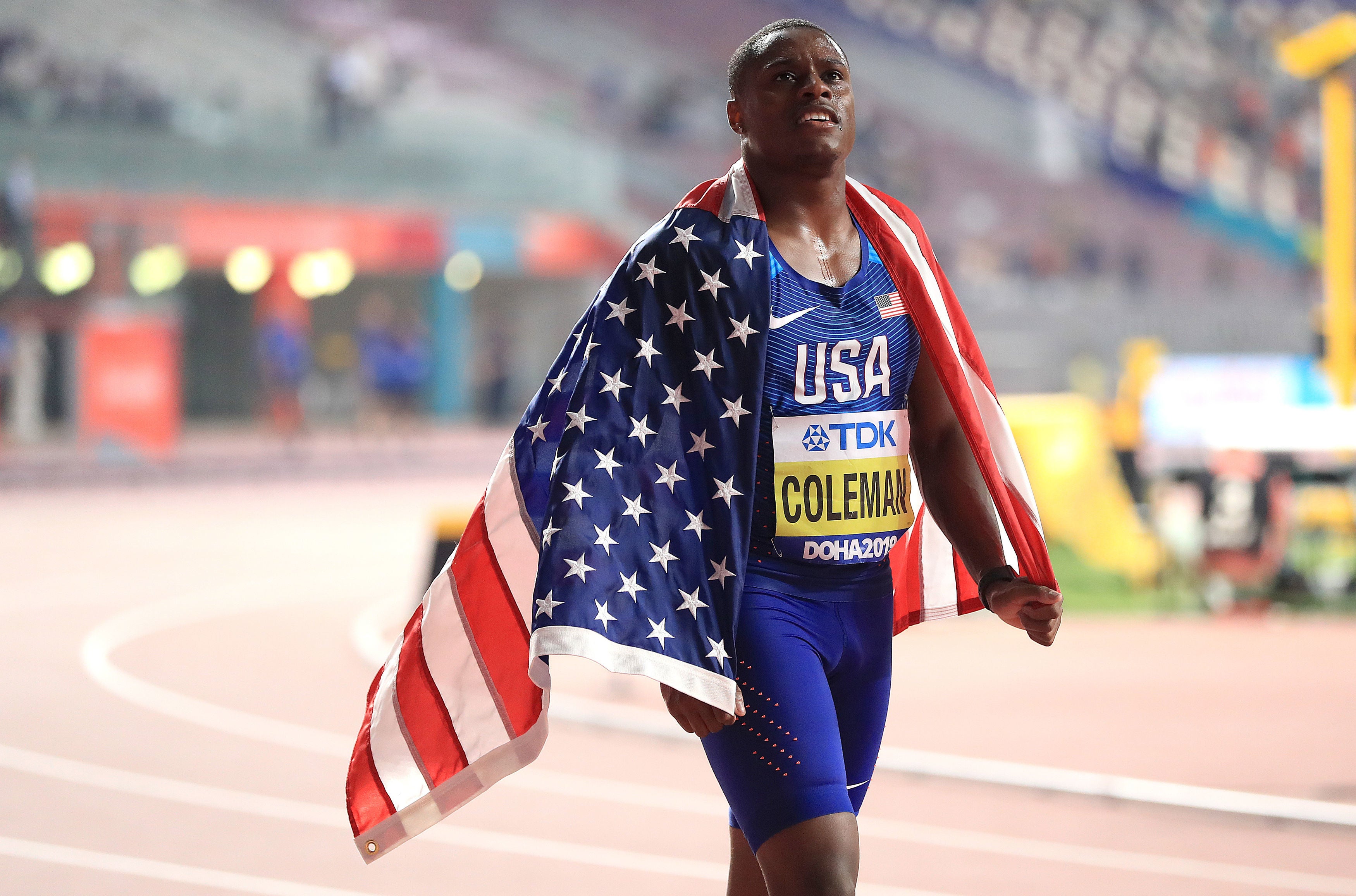Christian Coleman ban: World’s fastest man suspended for two years and ruled out of Tokyo 2020
The American committed three whereabouts failures in 12 months and a disciplinary tribunal upheld original suspension

Christian Coleman, the reigning 100m world champion, has been banned from athletics for two years for anti-doping violations. The American committed three whereabouts failures in 12 months and a disciplinary tribunal upheld the Athletic Integrity Unit’s (AIU) original suspension, meaning Coleman will not complete at the Olympic Games in Tokyo next summer should they go ahead.
The ban has been backdated to the spring meaning Coleman cannot complete until 13 May 2022, although he could now take his case to the Court of Arbitration for Sport for a final appeal against the suspension.
The 24-year-old sprinter missed two tests – the first in January 2019 and the second in December – and made a filing failure in between, accumulating the three misdemeanours in a one-year period which triggered the case against him.
Coleman was initially charged with the anti-doping violation of three whereabouts failures in August 2019, but his lawyers successfully argued that the three incidents did not fit into a 12-month timeframe on a technicality relating to the World Anti-Doping Agency’s rules around dates. The following month he won world championship gold in the 100m and 4x100m relay in Doha, before making yet another misdemeanour in December.
Coleman’s excuse for the December incident was that he was out Christmas shopping at a nearby mall and should have been phoned by the doping control officer (DCO) who visited his house. However, there is nothing in anti-doping regulations which stipulates a DCO should call an athlete and responsibility is supposed to fall upon the athlete to be at the location they have provided during their one-hour testing slot.
In its 22-page report the tribunal ripped apart Coleman’s excuses after he claimed to have returned home from the mall during the end of his allocated hour to watch the start of an NFL game. After examining receipts the panel concluded “it would have been simply impossible” for Coleman to have had time to go home to his apartment in between buying a chipotle and a trip to Walmart.
Evidence submitted to the panel by the AIU’s Raphael Roux revealed that testers were deliberately instructed not to call Coleman because they had reason to believe he'd been tipped off about previous tests.
Join our commenting forum
Join thought-provoking conversations, follow other Independent readers and see their replies
Comments
Bookmark popover
Removed from bookmarks